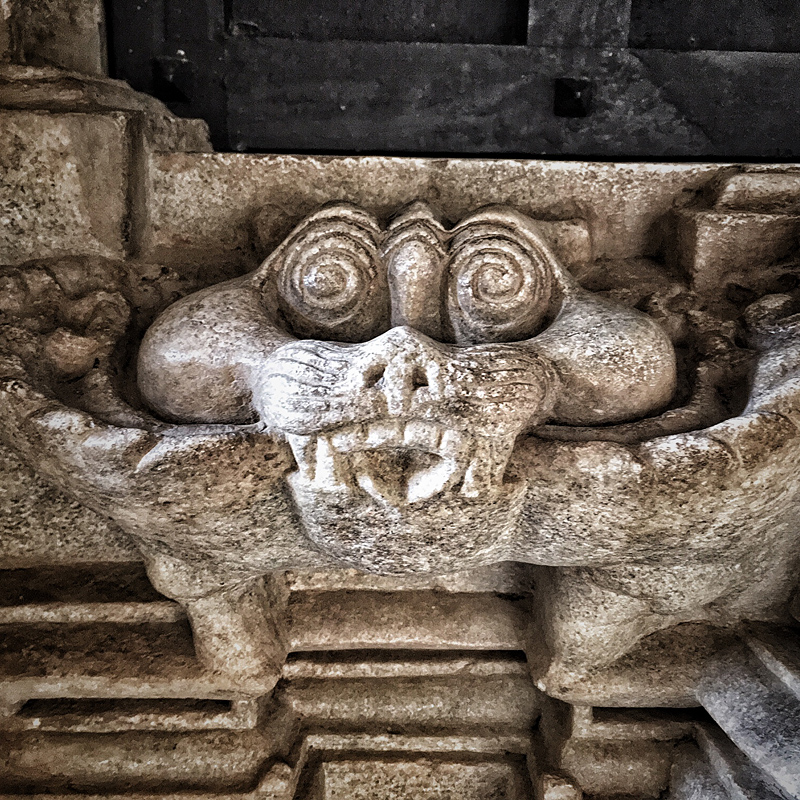experienced instructor
Yoga dictionary. Kaivalya
 In the modern world there are many interpretations of this concept. Freedom can be on the economic level, mental, material, spiritual and so on. In most cases, when it comes to freedom, it means the ability to get what you want without any restrictions and act as a particular individual sees fit. And in this case, the freedom of the individual is determined by the boundaries of his desires and fantasies. And since no desire can be fully satisfied (either because of lack of resources or because of limited sensory perception), such freedom is very illusory.
In the modern world there are many interpretations of this concept. Freedom can be on the economic level, mental, material, spiritual and so on. In most cases, when it comes to freedom, it means the ability to get what you want without any restrictions and act as a particular individual sees fit. And in this case, the freedom of the individual is determined by the boundaries of his desires and fantasies. And since no desire can be fully satisfied (either because of lack of resources or because of limited sensory perception), such freedom is very illusory.
What is Liberation, of which there is much talk in the various branches of yoga and Dharmic religions? Patanjali in his philosophical treatise fully reveals this concept not from a material but from a transcendental point of view. Continue reading
Yoga dictionary. Vikalpa
 Translated from Sanskrit “vikalpa” means “fantasy”, “imagination”. In the yoga sutras Patanjali gives a detailed explanation of such phenomena as Vritti. In the Sutra of the fifth Chapter of the first, Patanjali describes their effect on the mind. In A. Bailey’s version of the translation, the Sutra reads:”there are five States of mind, and they are subject to pleasure or pain, they are painful or not painful.” Later in the sixth Sutra of the same Chapter, Patanjali enumerates the five kinds of Vritti. In A. Bailey’s version of the translation, the Sutra reads: “These modifications are right knowledge, wrong knowledge, fantasy, passivity and memory.” Among the other five types of Vritti, Patanjali mentions here such a phenomenon as Vikalpa, which in A. Bailey’s translation means “fantasy”. In Swami Vivekananda’s version of the translation, “vikalpa “is”verbal illusions”. Krishnamacharya offers the meaning “of vikalpa” as “imagination”. Continue reading
Translated from Sanskrit “vikalpa” means “fantasy”, “imagination”. In the yoga sutras Patanjali gives a detailed explanation of such phenomena as Vritti. In the Sutra of the fifth Chapter of the first, Patanjali describes their effect on the mind. In A. Bailey’s version of the translation, the Sutra reads:”there are five States of mind, and they are subject to pleasure or pain, they are painful or not painful.” Later in the sixth Sutra of the same Chapter, Patanjali enumerates the five kinds of Vritti. In A. Bailey’s version of the translation, the Sutra reads: “These modifications are right knowledge, wrong knowledge, fantasy, passivity and memory.” Among the other five types of Vritti, Patanjali mentions here such a phenomenon as Vikalpa, which in A. Bailey’s translation means “fantasy”. In Swami Vivekananda’s version of the translation, “vikalpa “is”verbal illusions”. Krishnamacharya offers the meaning “of vikalpa” as “imagination”. Continue reading
Yoga dictionary. Vitarka
 By and large, we achieve some kind of” enlightenment ” every day. Any awareness of anything, any life lesson passed-this is a kind of”enlightenment”. Therefore, enlightenment is an endless process, because, as we know, evolution, as well as degradation, have no end point. There is no limit to both perfection and regression.
By and large, we achieve some kind of” enlightenment ” every day. Any awareness of anything, any life lesson passed-this is a kind of”enlightenment”. Therefore, enlightenment is an endless process, because, as we know, evolution, as well as degradation, have no end point. There is no limit to both perfection and regression.
If we talk about concepts more specifically, in yoga there is such a term as “Samadhi”. As you know, Sanskrit is a very complex language, and one word can have up to fifty different meanings. According to the yoga sutras of Patanjali, Samadhi is the ultimate stage of yoga. Again, the final stage does not mean the highest point of perfection. It is perhaps fair to say that yoga only begins at the level of Samadhi. Continue reading




